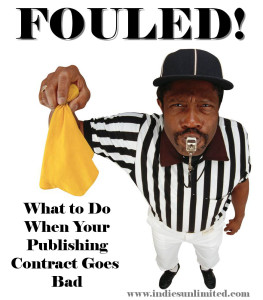 This month at IU, we’ve been featuring articles on bad experiences with publishing contracts — either bad deals or scammy companies. You’d think that with the proliferation of stories about companies that swindle authors or offer all-around bad deals, they’d all be out of business. Yet, many persist. And some even have glowing recommendations from authors who’ve used their services.
This month at IU, we’ve been featuring articles on bad experiences with publishing contracts — either bad deals or scammy companies. You’d think that with the proliferation of stories about companies that swindle authors or offer all-around bad deals, they’d all be out of business. Yet, many persist. And some even have glowing recommendations from authors who’ve used their services.
So, what’s the deal? Are these people getting better service than those who got scammed or do they, as my friend Jim suggested, suffer from Stockholm syndrome? For those unfamiliar, Stockholm syndrome occurs when a kidnapping victim begins to identify with captors and even ultimately defends the captors. Patty Hearst, the heiress kidnapped in 1974 by the Symbionese Liberation Army, later joined in the group’s crime spree and was said to have participated because she suffered from Stockholm syndrome. Continue reading “Do Some Vanity-Published Authors Suffer Stockholm Syndrome?”

 I saw a recent article with the headline
I saw a recent article with the headline  Yay, you came back! On Monday, we talked about
Yay, you came back! On Monday, we talked about